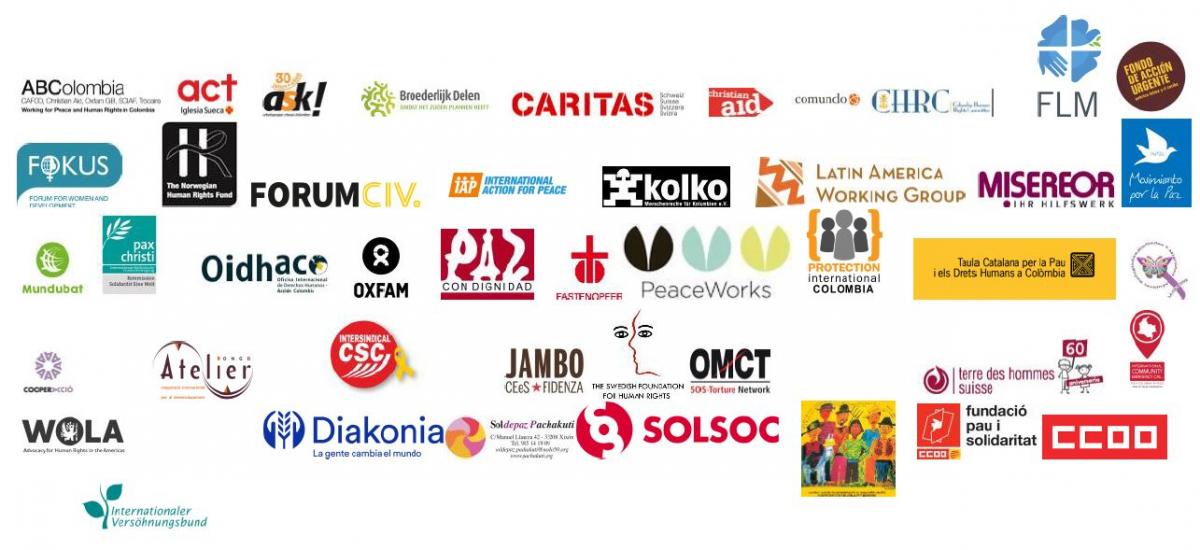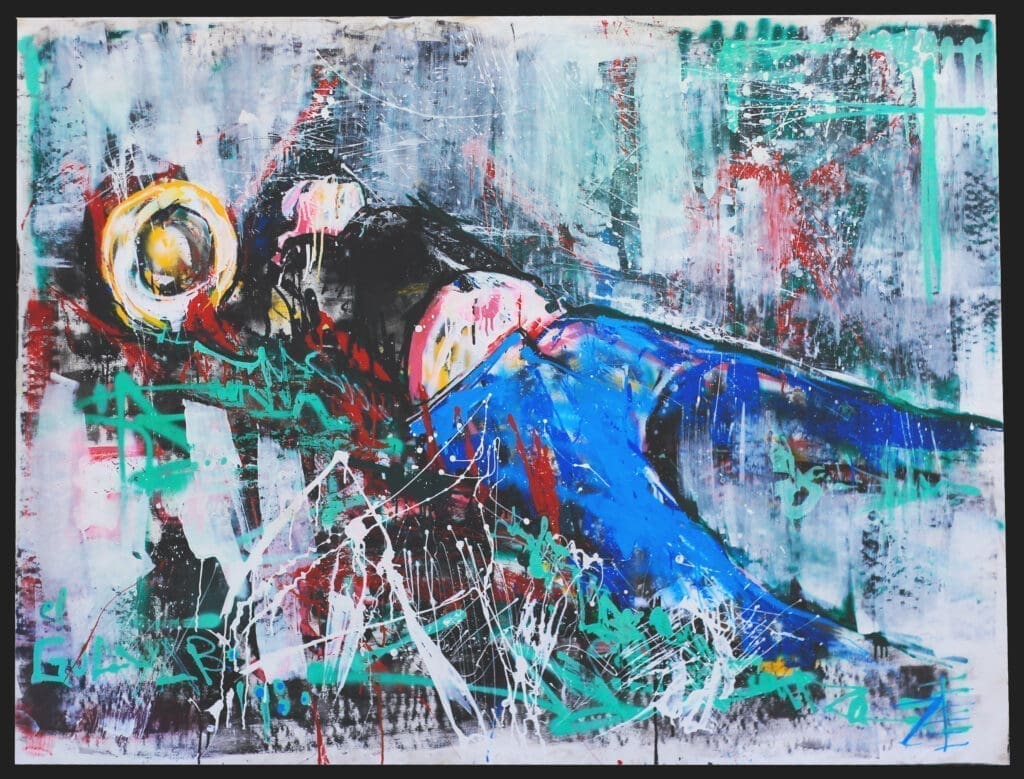International civil society organizations reject the excessive use of firearms and police abuse in the city of Bogota that leaves as a tragic result the death of 13 people, 400 injuries, 72 of them with firearms, and 3 women sexually harassed

[Bogota /Brussels] September 21 2020.- The Cooperation Space for Peace, the International Office for Human Rights – Action Colombia, and the civil society international organizations that have signed this statement, would like to express serious concerns about the killing of Colombian citizen Javier Ordóñez during his arrest, on the early morning of September 9, 2020. Mr. Ordóñez allegedly died after receiving blows to the head inflicted by members of the national police force. We would also like to express serious concerns about police abuses and the excessive use of firearms during protests that took place in reaction to this serious incident. According to a report from Michelle Bachelet, the United Nations High Commissioner for Human Rights (OHCHR), 13 people in Soacha and Bogotá were killed during these protests and, according to figures from the Mayor’s Office of Bogotá, more than 400 people were injured, 72 of them due to firearms. In particular, we would like to highlight three cases in which three women were victims of sexual abuse and harassment, verbal abuse, arbitrary detention, and bribery, reported by Colombian NGO Temblores to have been committed in a police station or CAI in the city of Bogotá.
We are also concerned about a threat circulating on social media in which the paramilitary group Águilas Negras bloque capital has declared human rights organizations, the victims’ movement, and human rights coordination groups to be “immediate military targets”. The Colombian State and government must protect the life and work of people who defend peace and human rights and provide sufficient guarantees for the legitimate right to assembly and public demonstration enshrined in Article 37 of Colombia’s Political Constitution. These are fundamental processes for citizen participation, in a country in transition towards peace.
This is not the first time that violence has been used in response to civil protests. According to the UNHCHR annual report, during the National Strike in Colombia at the end of 2019, 1,662 people were deprived of liberty, at least 36 protesters and 4 policemen were hospitalized due to injuries and actions were perpetrated that could constitute ill-treatment or torture, including forced nudity, repeated beatings, and death threats with racist overtones.
One young man named Dilan Cruz lost his life, on November 26, 2019, as a result of being shot in the head at close range by the Mobile Anti-Riot Squad with “homemade” or “bean bag” ammunition. There has been little progress towards justice, and the case has been transferred to the military criminal justice system, despite objections by the OHCHR Office in Colombia.
The National Police have reported that as of July 6, 2020, 3,674 internal investigations have been opened, including 1,474 into alleged police abuses (773 cases of alleged abuse of authority, 456 cases of physical assault, 153 cases of personal injury, and 92 cases of verbal assault). According to the human rights organisation CAJAR, these cases are underreported.
International civil society organizations call upon the international community to:
- Express clearly and forcefully its rejection of the use of repression and excessive violence during peaceful social demonstrations in Colombia and the deterioration of the situation of violence in general in the country in recent months
- Urge the Colombian government to provide sufficient guarantees for the political participation of Colombian citizens as part of the transition process in Colombia after the signing of the Peace Agreement with the FARC-EP in 2016.
- We ask that the countries accompanying the peace process and the implementation of the Final Agreement, urge the Colombian government to implement the measures established therein to guarantee mobilisation and peaceful protest, as well as the protocols on the use of force by the state security forces, create new instruments if it is necessary and guarantee that cases of human rights violations in the framework of the protests are investigated and tried by the civil jurisdiction and not the military one.
- Monitor investigations into recent and past cases of police abuses during protests to prevent serious human rights violations from going unpunished. In particular, accompany the National and International Citizen’s Commission announced by Colombian Human Rights Coordination Groups to investigate the events that occurred.
- Urge the Colombian government to activate all the protection instruments at its disposal so that these serious events are documented and actions taken by the relevant authorities. It is also important to request that the Colombian government issue an urgent invitation to the Special Rapporteurs on freedom of association and peaceful protest, extrajudicial executions and torture, and to the United Nations Working Group on Arbitrary Detentions.
- Increase support for processes that nurture and consolidate an active and informed citizen’s culture, which can demand accountability from institutions and appropriately manage conflicts where possible. This, along with guarantees for rights and legal frameworks, would prevent polarization, offer peaceful and dialogical solutions to nurture and protect society, as well as accelerate with greater strength and determination, the consolidation of a true and lasting peace.
- We ask that the European Union and its member states, the United Kingdom, Switzerland, and Norway, as part of their permanent dialogue and human rights dialogue with Colombia, address cases of violations of the right to free demonstration and peaceful protest, expressing their rejection of the violent acts of police repression and abuses. We also ask that they question stigmatizing statements that call into question the right to freedom of assembly and accompany the Colombian Government in a process of police reform following international standards and recommendations as a guarantee for non-repetition.
As International Civil Society Organisations, we support the idea of the National and International Citizen’s Commission as called for by Colombian Human Rights Coordination Groups to draw up a report that enables clarification of the events that occurred on the night of September 9 and the subsequent days and nights. In this respect, Juliette de Rivero, a representative in Colombia of the UN High Commissioner for Human Rights, has noted that respect for the life, physical and psychological integrity, and civil and political liberties of the protesting citizens, as well as the application of human rights standards, are ethical imperatives that will enable greater advances in democracy and the social and democratic Rule of Law in Colombia.
Cooperation Space for Peace (Espacio de Cooperación para la Paz)
International Office for Human Rights – Action Colombia
Further information OIDHACO: Jorge Gómez, OIDHACO Coordinator, oidhaco [at] oidhaco.org, tel. +32 2 5361913
Cooperation Space for Peace (Espacio de Cooperación para la Paz – ECP) Cooppaz2016 [at] gmail.com
Comprised of the following organizations: ABColombia, Broederlijk Delen, Caritas Suiza, Christian Aid, Colombian Human Rights Committee, Norwegian Committee in Solidarity with Latin America, Comundo, Fastenopfer, World Lutheran Federation, Fokus, Urgent Action Fund for Latin It America, It Forum Syd, Swedish Foundation for Human Rights, Grupo de Trabajo Suiza Colombia -ASK!-, Heks-Eper, ICCO, Act Church of Sweden, International Action for Peace (observers), kolko – Menschenrechte für Kolumbien, Latin American Working Group, Mundubat, Movimiento por la Paz -MPDL-en Colombia, OIDHACO, Oxfam, Paz con Dignidad, Peace Brigades International –PBI- (observer), SweFOR (observer), Swissaid, Terre des Hommes Suisse, Wola


